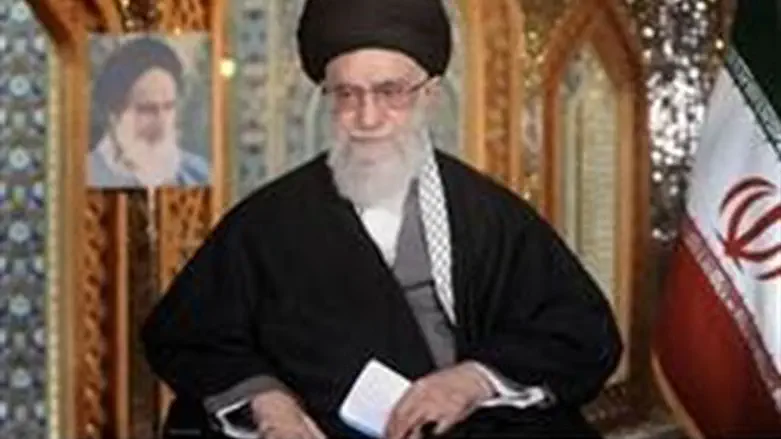
As he threatened to "annihilate" the Israeli cities of Tel Aviv and Haifa if Iran comes under attack by the Jewish state, the Islamic Republic's supreme leader also signalled on Thursday openness to U.S. offers to hold direct talks on his country's disputed nuclear drive.
Supreme leader Ayatollah Ali Khamenei has the final say in all decisions on Iran's nuclear program, which the West suspects is cover for a drive for a weapons capability.
“U.S. officials time after time have offered one-on-one talks" on the sidelines of negotiations with the so-called P5+1 group of major powers, Khamenei was quoted by AFP as having said in an address broadcast live on state television.
"I am not optimistic about these (direct) talks but I am not opposed to it either," Khamenei said, while visiting the holy city of Mashhad in northeastern Iran on the occasion of Persian New Year.
The United States -- along with Britain, China, France and Russia plus Germany -- has been involved in the long running P5+1 negotiations with Iran. The next round of those talks is scheduled for April 5-6 in the Kazakh city of Almaty, after Iran hailed the last round in March as a turning point.
A senior U.S. official, speaking in Jerusalem where President Barack Obama is travelling, said that Washington was committed to the P5+1 process.
The official added, "But in that context, we would be open to bilateral discussions."
Previous calls by Washington for direct dialogue with Tehran had been shot down by Khamenei. The two governments have had no diplomatic relations for more than three decades.
Khamenei did not say what had prompted his change of heart. But he played down the prospects of a breakthrough.
“We believe the Americans are not interested in a nuclear settlement," Khamenei said, according to AFP.
He added that U.S. officials would "only want to dictate their own agenda" and not listen to Iranian positions.
In February, U.S. Vice President Joe Biden warned Iran that opportunities for diplomacy over its disputed nuclear program were not unlimited but offered direct talks between Washington and Tehran.
Last October, before the presidential elections, it was reported that the U.S and Iran had agreed to hold one-on-one negotiations over Iran’s nuclear program.
One senior official in the Obama administration said at the time that the Iranians insisted that the talks wait until after the presidential election.
The White House rejected the report at the time, saying that “it has always been our goal for sanctions to pressure Iran to come in line with its obligations.”
If the U.S. was seeking a solution, Khamenei said on Thursday, "The Americans should recognize Iran's right to enrichment and then move to alleviate their concerns by implementing the regulations" of the International Atomic Energy Agency.
The IAEA, the UN's atomic energy watchdog which monitors Iran's nuclear activities, has raised the alarm over possible weapons-related work in the past.

